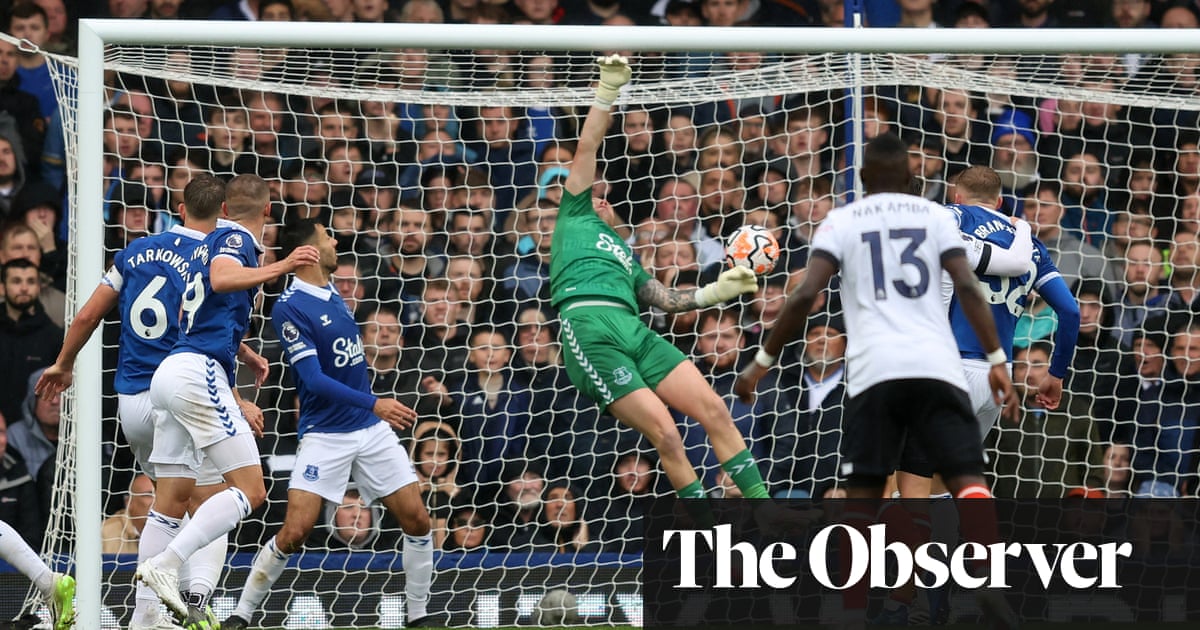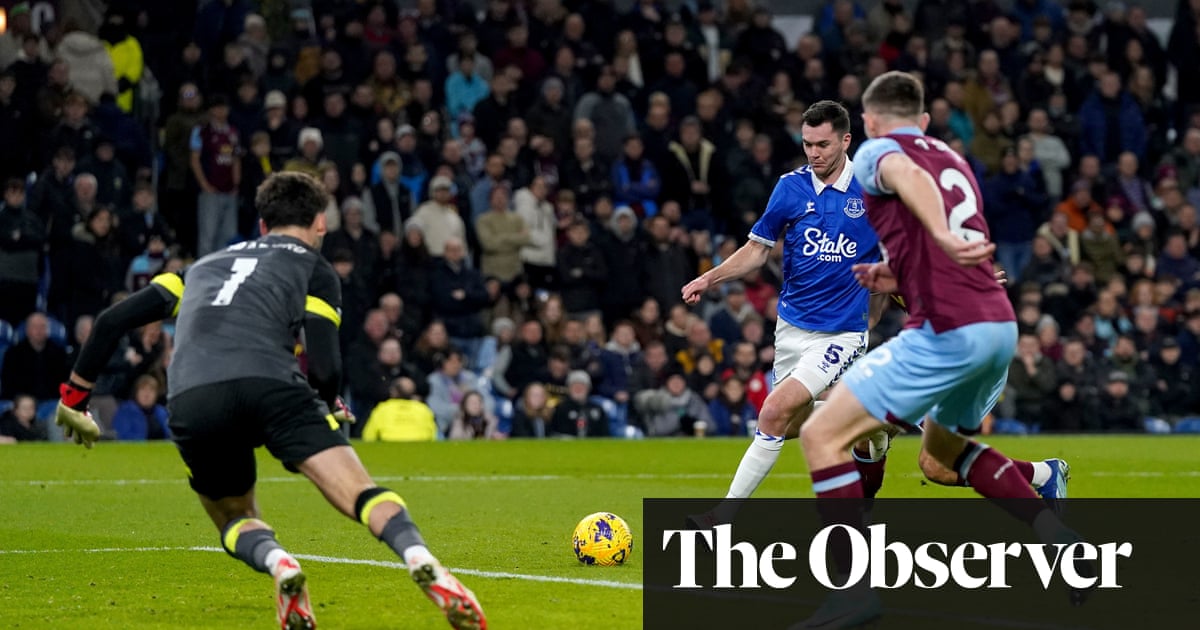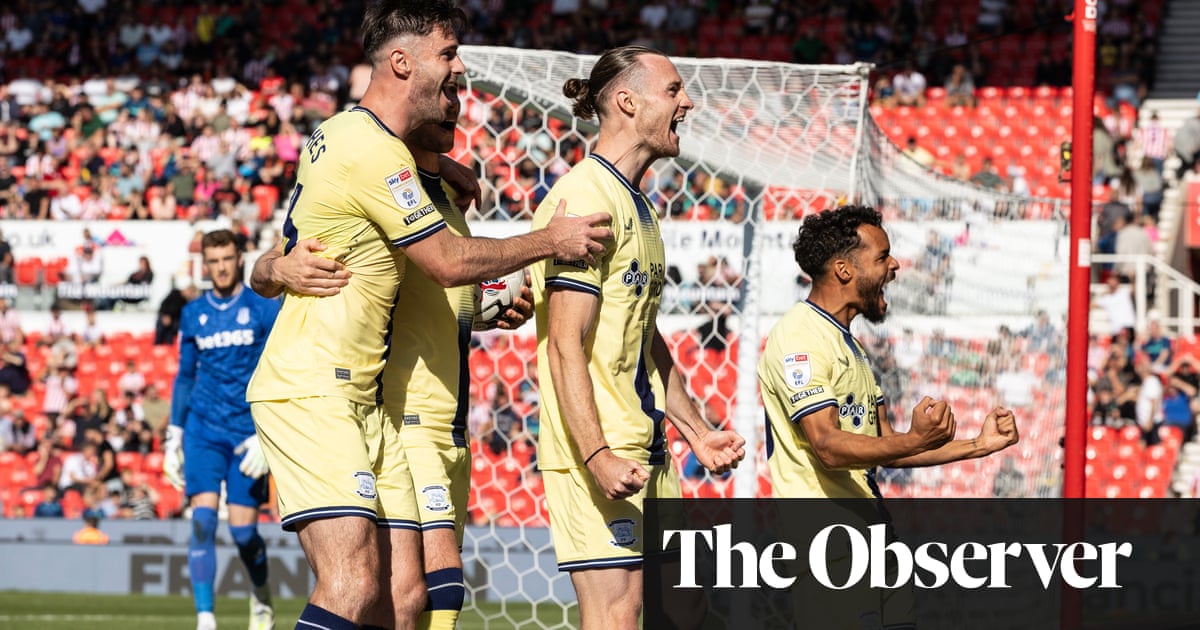
Sean Dyche’s formula for Premier League survival is different to that of Kieran McKenna. It has a kitemark of being tried and trusted. If Everton’s midfield muscle, set-piece expertise and hard-bitten, deep defending flies in the face of Ipswich’s attack-minded philosophy, here was a hard lesson that the pretensions of playing the right way will not always land the right result.
“This club’s’ done an amazing job to get where they’ve got to,” said Dyche of his vanquished opponent. “But they don’t have our level of experience. I thought we showed a lot of authority.”
Eight points from four matches has followed Everton’s poor start. Part of Dyche-ian deja vu is his teams rarely beginning seasons well, eventually finding their gears as autumn comes. McKenna’s team remain winless in the Premier League. “We know we can be competitive but games can get away from you,” said Ipswich’s manager. “Mistakes can be punished ruthlessly.”
His team had blown their golden chance to open the scoring. After that, they struggled to make proper opportunities. Wes Burns burst to the byline, only for Jack Clarke to skew wide. That was the Ipswich that wins hearts. The bit that turns up noses arrived soon enough. Trying to play out from defence tangled up Sam Morsy and Luke Woolfenden. In stole Dominic Calvert-Lewin for the first of many misses.
Where Arijanet Muric almost always played out from goal, Jordan Pickford repeatedly launched the ball forwards, making Ipswich jumpy in possession where Everton were set up to be without the ball. Ipswich’s nerves supplied the opener. Burns dithered in his own box, the excellent Iliman Ndiaye took control and Muric had no answer. Dyche himself may refuse to use the terminology but his team were employing an aggressive high press.
Home redemption might have come when Clarke looked to be fouled in the box by McNeil, only for VAR to overrule. “Inexplicable,” said McKenna, wondering if the referee Michael Oliver’s initial mistake had been clear and obvious. “A very poor one.”
Ipswich had improved, Dyche’s sub-bass growl relaying concerns but his team soon took advantage of more Suffolk slackness. After a cleared corner, McNeil’s deft control made space. He found Michael Keane on an angle from which central defenders are not known for scoring though Keane has a reputation as one of Everton’s best finishers. “They have a high level of individual quality,” said McKenna; McNeil and Ndiaye had decorated Portman Road throughout with their flair.
“Those were poor goals to concede,” continued McKenna. “We know Everton are strong in those situations.” He made no half-time changes after 45 minutes where he declared the “margins were very small”.
Everton remained more dangerous, Ipswich’s execution not meeting creative ambitions; Ashley Young, in his 40th year, remained steadfast. “His mentality stays firm,” said his manager. Evertonian muscle was in full control, Ipswich unable to offer anything similar once local-boy heavyweight boxer Fabio Wardley had finished his half-time meet and greet.
Had Calvert-Lewin’s finishing – three second-half chances were blown – matched the rest of his game, Everton would have won easily. As 90 minutes closed out a first meeting between the clubs since 2002 drew audible home frustrations. Losing weekly – and weakly – adds little novelty value to the Premier League experience. “In the second half we couldn’t produce a response that was good enough,” said McKenna. Everton retrenched, played for time; another central tenet of the Dyche doctrines is slowing down games when leading. Liam Delap whizzed a shot and then a header wide before substitute Conor Chaplin shot straight at Pickford. “The shape of the team was all on show,” Dyche said approvingly. All part of a plan executed to near perfection.












